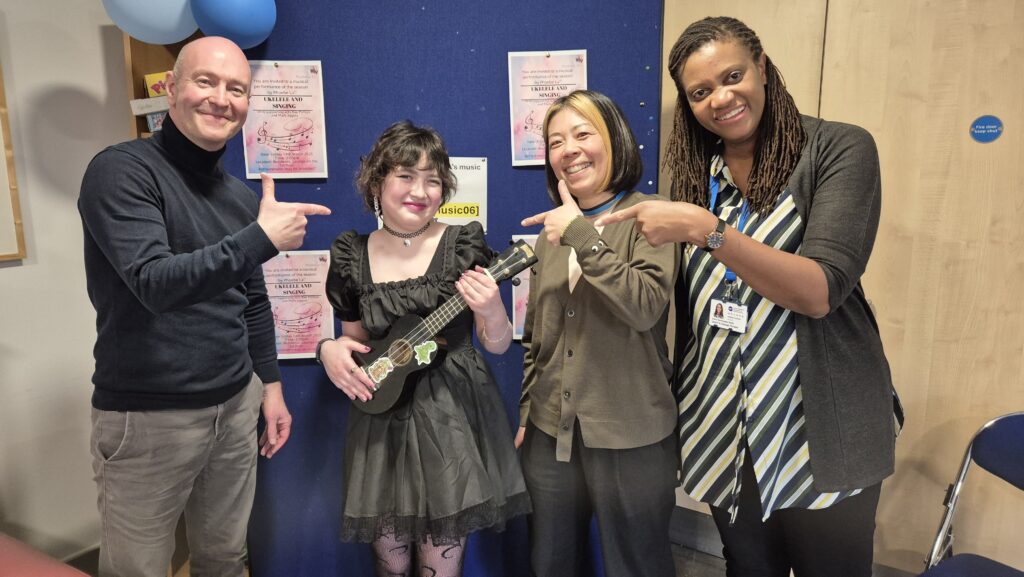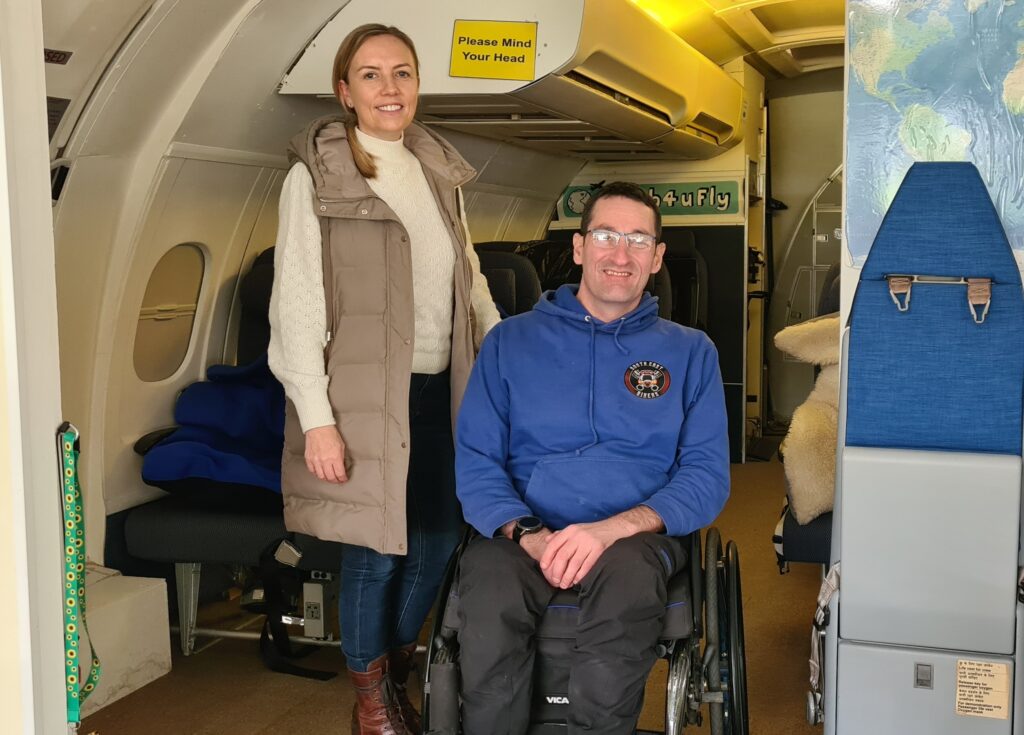“On the 11th of April this year, my journey began unexpectedly after what seemed like an ordinary lunch. On my way home, I fell down the stairs at Tower Hill Tube Station. I have no recollection of falling, tripping, or anyone pushing me.
I ended up in the Royal London Hospital. One of my son’s friends, who happened to be walking past, recognised me as I fell and called the ambulance. It was a nasty fall, and three ambulances arrived. They almost shut the station because of the incident.
For the first four days, I had no idea what was happening. My wife told me that I was quite contentious. On the second day, I had a stroke, and the surgeon told my wife that I might not make it. It was quite dodgy.
Four days after the fall, my wife asked me if I knew where I was. I thought I was in Haslemere, watching telly. She told me I had been in hospital for four days. It took me a long time to accept it wasn’t just a dream. Now, three months later, I am trying to recover.
I spent five weeks at the Royal London Hospital before being moved to the Royal Surrey hospital in Guildford, where I spent three weeks. It was when I was there that my wife did extensive research and found this place (QEF). Rehab was the name of the game, and I could have easily died before. Now, the last thing I want to do is die. I want to live and am prepared to do whatever the people here want me to do if it helps me improve.
I’ve been here for five weeks now, and I am signed up to stay until the 1st of August, but my key workers, Zoe and Rachel, applied for another six weeks, so I’m here until mid-September. Things have improved. I had a catheter, which was very painful, but it was taken out yesterday. That was one of my main aims for coming here.
I have physio every day with Rachel and Zoe, and it’s going well. I’ve been standing with knee blocks, and the other day they had me in a Zimmer frame. I’ve lost all my inhibitions. I never thought I’d be comfortable with people wiping my bottom, but now I couldn’t give a damn.
My right arm, which wasn’t moving at all when I came here, is now as good as my left. I’ve had MS since 2006, affecting my left side, but fortunately, it’s my left side because I’m right-handed. My left leg is stronger than my right leg, which I can’t move at all. The staff say they can feel the muscles trying to fire up, but I can’t move it.
I believe the inability to move my right leg is either a result of the stroke or the fall. We’ve asked for the CCTV of my fall from London Transport but haven’t received it yet. My wife has been a saint, visiting me almost every day despite the long journey from Haslemere to the Royal London Hospital.
I hope to walk again, but if I can’t, I might need adaptations to my car and house. I can’t wait to get home, where I believe I’ll recover faster. My wife and family visit often, and I enjoy their company.
Before the accident, I was retired since 2010. I worked as a governor for a local state junior school for about four years, played golf with a buggy, and enjoyed theatre and cinema. I worked for AXA as an accountant before retiring early due to MS.
I’m determined to live and recover as much as I can. I advise anyone in a similar situation to commit fully to their therapy. The more you put in, the more you get out.
Regarding funding for QEF, I think people with friends or relations who’ve suffered might be inclined to donate. My wife ran for the Samson Centre in Guildford, and I know people who raised funds for it. If I were to fundraise, it would be for places like this, where I’ve received significant help.
I’ve moved on from needing a hoist to using a SARA Plus to transfer from bed to chair. I’m more confident sitting on the edge of the bed now. My brain is rewiring itself, and I’ve peed twice on my own since the catheter was removed, which makes me seriously happy.
I believe focusing on small achievements is key. Little things like peeing on my own give me gratification and hope for the future. If there’s one message I’d give to others, it’s to listen to your therapists and commit fully to your rehabilitation. “
Story Update: 20/04/25
Dad’s fall spurs on best friends running London marathon for QEF.
A group of best friends from Surrey are running together in this year’s London Marathon to raise money for a disability charity that supported one of their dads.
Rory Andrews, from Cranleigh, Joseph Garner from Woking and Oliver Millward from Guildford will be joining the tens of thousands of runners who will be taking part in the 26.2 mile race on Sunday 27th April and hope to raise money for Surrey based charity, Queen Elizabeth’s Foundation for Disabled People (QEF).
The charity supported Rory’s father, Colin, after he fell down the stairs in a London tube station in 2024. As a result, he fractured his skull, suffered a stroke and was left unable to walk. He received neuro rehabilitation at the charity’s Care and Rehabilitation Centre in the heart of Surrey, which is a modern and comfortable centre of expertise.
Rory, 34, said: “After the accident, dad hadn’t been out of his hospital bed for nearly four months before coming to QEF. His care there over a period of three months was instrumental in getting him to where he is now, and he is making great progress and focusing on regaining his full mobility. He is still improving day by day, but I know thanks to QEF he is far better than he might have been without their support.\
“Since I started my marathon training, I have got the running bug. I am getting fitter each week and I actually just got my 10K personal best at the Brighton 10k recently. I am really looking forward to completing the marathon and it makes it even more special to be doing it with my best mates, all of who know my dad. We will all be accomplishing something I never thought I would or could do for a brilliant cause.”
Joining Rory, Joseph and Oliver are three of their good friends, Samuel Purvis from Knutsford, Cameron King from Alnwick and Alex Jordan from Liphook. The group met more than eight years ago playing rugby at Guildford rugby club and have remained good friends ever since. Together they hope to raise £12,000 for the charity.
Oliver, 30, added “Colin has been present at many of our rugby matches and has shown his support for us in various ways in the past, so now it is our turn to show him and Rory the support they deserve and give thanks to QEF, and its invaluable work.”
Shannon Holmes, Events and Community Executive at QEF added: “We can’t thank Rory, Joseph, Oliver, Alex, Samuel and Cameron enough. Their fundraising efforts will make a real difference to so many people today and in the future.”


